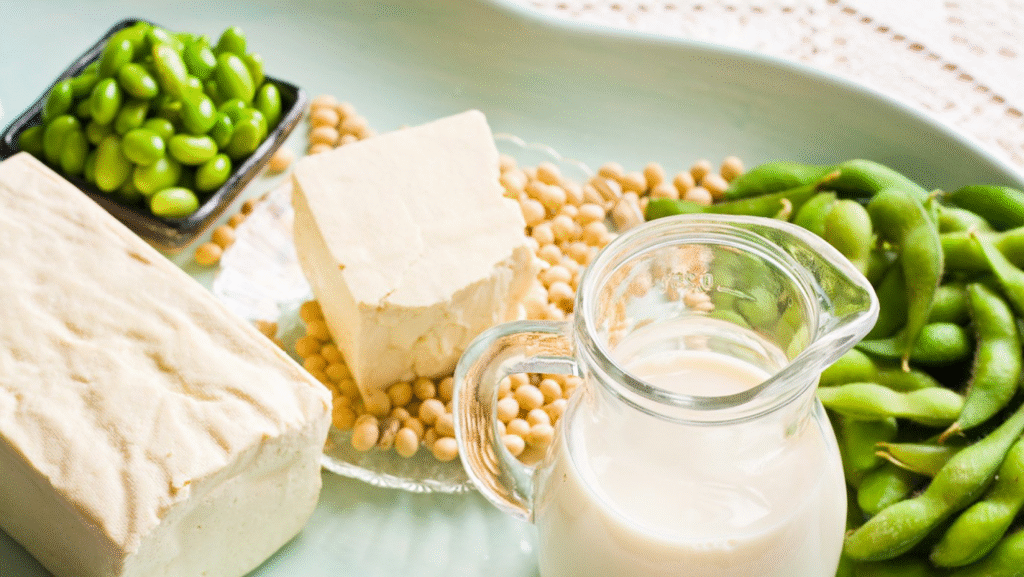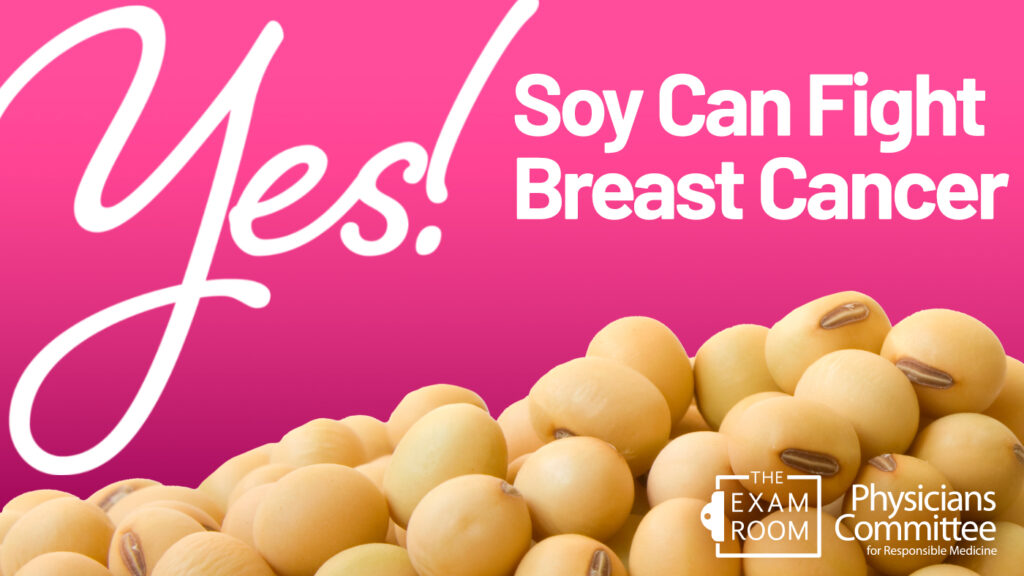Cancer patients often face unique nutritional challenges, from managing treatment side effects to supporting overall health and recovery. Among the many foods discussed in cancer nutrition, soybeans and soy-based products—such as tofu, tempeh, edamame, and soy milk—are particularly controversial. Some experts champion soy for its potential protective effects, while others raise concerns about its influence on hormone-related cancers, especially breast cancer. This post explores both perspectives, reviews the latest research, and offers practical nutrition tips for cancer patients considering soy in their diets.

Soybeans are a staple in many Asian diets and are increasingly popular worldwide. They are rich in:
- High-quality plant protein
- Dietary fiber
- Healthy fats (including omega-3 fatty acids)
- Essential minerals (potassium, magnesium)
- Isoflavones (phytoestrogens with estrogen-like activity)
These nutrients make soybeans a valuable protein source, especially for those reducing meat intake or following plant-based diets.
The Case for Soybeans: Potential Benefits for Cancer Patients
1. Reduced Cancer Risk
Multiple studies and meta-analyses suggest that high consumption of soy products—especially tofu and soy milk—is associated with a lower overall risk of cancer. A comprehensive meta-analysis of 52 studies found that high total soy product consumption was linked to a 31% reduction in total cancer risk (relative risk 0.69), with tofu and soy milk showing particularly strong associations.Each additional 54 grams of soy products per day reduced cancer risk by 11%.
2. Breast Cancer: Lower Risk and Improved Survival
Research consistently finds that moderate soy consumption does not increase breast cancer risk. In fact, population studies in Asia—where soy is a dietary staple—link moderate soy intake (one to two servings per day) to lower breast cancer risk and improved survival among survivors. For example:
- The American Cancer Society states that the health benefits of soy outweigh potential risks, and that soy foods may lower breast cancer risk, especially among Asian women.
- A large prospective study found that women with the highest soy isoflavone intakes had a 21% lower risk of death after breast cancer diagnosis compared to those with the lowest intake.
- Among breast cancer survivors, moderate soy intake (at least 10 mg isoflavones daily) was associated with lower recurrence rates and greater overall survival.
3. Other Cancers
Soy intake has also been linked to reduced risks of lung and prostate cancer. The protective effect appears strongest with whole soy foods rather than highly processed or isolated soy components.
4. Mechanisms of Action
Soy isoflavones, particularly genistein and daidzein, can act as weak estrogens or anti-estrogens in the body. In breast tissue, this may block the stronger effects of natural estrogen, potentially reducing cancer risk. Additionally, soy’s dietary fiber and healthy fats may help regulate insulin and inflammation, factors implicated in cancer development.
The Case Against Soybeans: Concerns and Controversies
1. Isoflavones and Hormone-Related Cancers
The primary concern about soy for cancer patients centers on its isoflavones, which can mimic estrogen. Since increased estrogen exposure is linked to certain cancers (notably, hormone receptor-positive breast cancer), some fear that soy could stimulate tumor growth or interfere with treatments like tamoxifen.
- Early animal studies raised concerns that soy isoflavones could promote breast cancer growth, but these findings have not been replicated in human studies.
- Some clinical trials and observational studies have found no association between soy intake and increased breast cancer risk, even among survivors or those taking hormone therapies.
2. Inconsistent Research Findings
Not all studies agree on soy’s protective effects. Some large cohort studies in China and Western countries found no clear association between moderate soy intake and breast cancer risk. The protective effect seems more pronounced in populations with higher lifelong soy consumption (e.g., Asian women), suggesting that timing, amount, and individual genetics may play roles.
3. Individual Differences
Soy metabolism varies by individual, influenced by genetics and gut bacteria. Only about 30% of Western populations can convert soy isoflavones into equol, a compound with potentially stronger protective effects, compared to 65% in Asian populations. This variability may explain why soy appears more beneficial in some groups than others.

What Does the Latest Research Say?
Meta-Analyses and Population Studies
- No Increased Risk: Consistent findings from population studies indicate no increased risk for breast cancer survivors who consume soy foods.
- Possible Benefits: Limited evidence suggests moderate soy intake may lower recurrence and improve survival in breast cancer survivors.
- Dose Matters: Protective effects are more evident at higher intake levels (similar to Asian diets), but even moderate amounts appear safe and possibly beneficial.
- No Negative Impact on Treatment: Soy does not interfere with common breast cancer treatments like tamoxifen.
Expert Consensus
Major cancer organizations, including the American Cancer Society and the American Institute for Cancer Research, agree that soy foods are safe and may be beneficial as part of a balanced diet for cancer patients and survivors.
Practical Nutrition Tips for Cancer Patients Considering Soy
1. Choose Whole or Minimally Processed Soy Foods
2. Aim for Moderate Intake
3. Individualize Your Diet
4. Focus on Variety and Balance
- Include a wide range of plant-based foods: vegetables, fruits, whole grains, legumes, nuts, and seeds.
- Soy can be a valuable part of this pattern, but it should not be the sole focus.
5. Avoid High-Dose Supplements
Addressing Common Myths
- Myth: “Soy acts like estrogen and causes cancer.”
Fact: Human studies show that soy does not increase cancer risk and may even reduce it, particularly in populations with higher intake.- Myth: “Breast cancer survivors should avoid soy.”
Fact: Moderate soy intake is safe and may lower recurrence risk; it does not interfere with hormone therapies.- Myth: “All soy foods are equally beneficial.”
Fact: Whole and minimally processed soy foods are preferable to highly processed products or supplements.
Conclusion: Should Cancer Patients Eat Soybeans?
After weighing both sides and reviewing the latest research, the evidence strongly supports the safety—and potential benefits—of moderate soy consumption for most cancer patients and survivors. High-quality studies and expert organizations agree that soy foods do not increase cancer risk and may offer protective effects, especially for breast cancer and possibly other cancers.
Key Takeaways:
- Whole soy foods are a nutritious, safe protein source for cancer patients.
- Moderate intake (one to two servings daily) is associated with lower cancer risk and improved outcomes in some studies.
- Soy does not increase the risk of breast cancer or interfere with common treatments.
- Individual responses may vary; consult your healthcare team for personalized advice.
Bottom line: Including soybeans and soy foods as part of a balanced, plant-rich diet is a sound choice for most cancer patients, supporting both nutritional needs and long-term health.
References (for further reading):
- American Cancer Society: Soy and Cancer Risk: Our Expert’s Advice
- MD Anderson Cancer Center: Is soy safe for patients with breast cancer?
- Harvard T.H. Chan School of Public Health: Straight Talk About Soy
- American Institute for Cancer Research: Soy and Cancer
Always consult your oncology care team or a registered dietitian before making significant dietary changes during cancer treatment.


